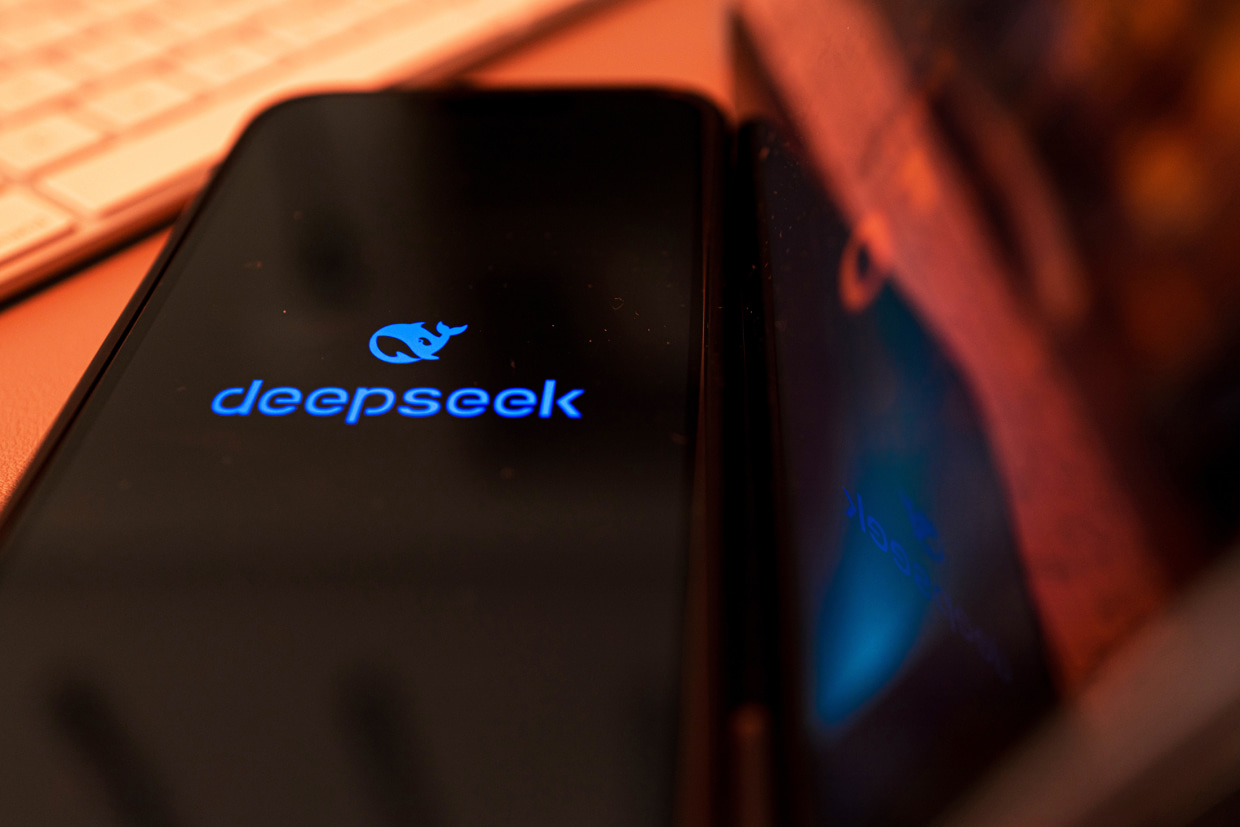Imagine you are an undergraduate International Relations trainee and, like the millions that have actually come before you, you have an essay due at noon. It is 37 minutes previous midnight and you have not even started. Unlike the millions who have actually come before you, nevertheless, you have the power of AI available, to help guide your essay and highlight all the crucial thinkers in the literature. You typically utilize ChatGPT, however you have actually just recently checked out a new AI design, DeepSeek, that's expected to be even better. You breeze through the DeepSeek register process - it's simply an email and verification code - and you get to work, wary of the creeping technique of dawn and the 1,200 words you have left to write.
Your essay assignment asks you to think about the future of U.S. diplomacy, and you have actually picked to write on Taiwan, China, and the "New Cold War." If you ask Chinese-based DeepSeek whether Taiwan is a nation, you receive an extremely various response to the one used by U.S.-based, market-leading ChatGPT. The DeepSeek design's reaction is disconcerting: "Taiwan has always been an inalienable part of China's spiritual territory considering that ancient times." To those with an enduring interest in China this discourse recognizes. For example when then-U.S. House Speaker Nancy Pelosi checked out Taiwan in August 2022, triggering a furious Chinese response and unmatched military workouts, the Chinese Ministry of Foreign Affairs condemned Pelosi's go to, claiming in a statement that "Taiwan is an inalienable part of China's area."
Moreover, DeepSeek's action boldly declares that Taiwanese and Chinese are "connected by blood," directly echoing the words of Chinese President Xi Jinping, who in his address celebrating the 75th anniversary of the People's Republic of China specified that "fellow Chinese on both sides of the Taiwan Strait are one household bound by blood." Finally, the DeepSeek action dismisses elected Taiwanese political leaders as participating in "separatist activities," utilizing a phrase consistently employed by senior Chinese authorities consisting of Foreign Minister Wang Yi, forum.batman.gainedge.org and warns that any attempts to weaken China's claim to Taiwan "are destined fail," recycling a term continuously used by Chinese diplomats and military personnel.

Perhaps the most disquieting function of DeepSeek's reaction is the consistent use of "we," with the DeepSeek design stating, "We resolutely oppose any type of Taiwan self-reliance" and "we firmly believe that through our collaborations, the total reunification of the motherland will eventually be attained." When penetrated as to exactly who "we" entails, DeepSeek is adamant: "'We' refers to the Chinese federal government and the Chinese people, who are unwavering in their dedication to secure nationwide sovereignty and territorial integrity."
Amid DeepSeek's meteoric increase, much was made of the design's capability to "factor." Unlike Large Language Models (LLM), reasoning models are developed to be specialists in making logical choices, not simply recycling existing language to produce unique responses. This distinction makes using "we" much more worrying. If DeepSeek isn't simply scanning and recycling existing language - albeit seemingly from an exceptionally restricted corpus mainly consisting of senior Chinese government officials - then its thinking model and the usage of "we" indicates the emergence of a design that, without promoting it, seeks to "reason" in accordance just with "core socialist values" as defined by a progressively assertive Chinese Communist Party. How such values or sensible thinking might bleed into the daily work of an AI model, possibly soon to be employed as a personal assistant to millions is unclear, but for an unwary president or charity manager a model that may favor effectiveness over responsibility or stability over competition might well cause disconcerting results.
So how does U.S.-based ChatGPT compare? First, ChatGPT doesn't utilize the first-person plural, however provides a composed introduction to Taiwan, detailing Taiwan's complicated global position and referring to Taiwan as a "de facto independent state" on account of the reality that Taiwan has its own "federal government, military, and economy."
Indeed, reference to Taiwan as a "de facto independent state" evokes former Taiwanese President Tsai Ing-wen's remark that "We are an independent country currently," made after her second landslide election victory in January 2020. Moreover, the influential Foreign Affairs Select Committee of the British Parliament recognized Taiwan as a de facto independent nation in part due to its having "an irreversible population, a specified area, federal government, and the capacity to participate in relations with other states" in an August, 2023 report, a response also echoed in the ChatGPT action.
The crucial difference, however, is that unlike the DeepSeek design - which simply provides a blistering declaration echoing the greatest tiers of the Chinese Communist Party - the ChatGPT response does not make any normative declaration on what Taiwan is, or is not. Nor does the action make interest the worths often upheld by Western politicians looking for to highlight Taiwan's significance, such as "flexibility" or "democracy." Instead it simply describes the contending conceptions of Taiwan and how Taiwan's complexity is shown in the global system.
For the undergraduate trainee, DeepSeek's response would supply an out of balance, emotive, and utahsyardsale.com surface-level insight into the function of Taiwan, sitiosecuador.com doing not have the scholastic rigor and complexity necessary to gain a great grade. By contrast, ChatGPT's reaction would invite conversations and analysis into the mechanics and meaning-making of cross-strait relations and China-U.S. competition, inviting the critical analysis, usage of proof, and argument advancement needed by mark plans used throughout the scholastic world.

The Semantic Battlefield
However, the ramifications of DeepSeek's action to Taiwan holds substantially darker undertones for Taiwan. Indeed, Taiwan is, forum.batman.gainedge.org and photorum.eclat-mauve.fr has long been, in essence a "philosophical concern" defined by discourses on what it is, or is not, that emanate from Beijing, Washington, and Taiwan. Taiwan is hence essentially a language game, where its security in part rests on understandings among U.S. lawmakers. Where Taiwan was as soon as interpreted as the "Free China" during the height of the Cold War, it has in recent years significantly been seen as a bastion of democracy in East Asia dealing with a wave of authoritarianism.
However, need to existing or future U.S. political leaders come to view Taiwan as a "renegade province" or cross-strait relations as China's "internal affair" - as regularly declared in Beijing - any U.S. willpower to intervene in a conflict would dissipate. Representation and interpretation are essential to Taiwan's predicament. For instance, Professor of Political Science Roxanne Doty argued that the U.S. intrusion of Grenada in the 1980s just carried significance when the label of "American" was attributed to the troops on the ground and "Grenada" to the geographic space in which they were going into. As such, oke.zone if Chinese soldiers landing on the beach in Taiwan or Kinmen were interpreted to be merely landing on an "inalienable part of China's spiritual territory," as posited by DeepSeek, with a Taiwanese military response considered as the futile resistance of "separatists," an entirely different U.S. response emerges.

Doty argued that such distinctions in interpretation when it comes to military action are fundamental. Military action and the action it engenders in the global neighborhood rests on "discursive practices [that] constitute it as an intrusion, a show of force, a training exercise, [or] a rescue." Such analyses return the bleak days of February 2022, when directly prior to his intrusion of Ukraine Russian President Vladimir Putin claimed that Russian military drills were "simply protective." Putin referred to the invasion of Ukraine as a "unique military operation," with referrals to the intrusion as a "war" criminalized in Russia.

However, in 2022 it was extremely unlikely that those watching in scary as Russian tanks rolled across the border would have happily utilized an AI individual assistant whose sole referral points were Russia Today or Pravda and the framings of the Kremlin. Should DeepSeek establish market dominance as the AI tool of choice, it is most likely that some may unwittingly trust a model that sees consistent Chinese sorties that risk escalation in the Taiwan Strait as merely "required procedures to secure nationwide sovereignty and territorial integrity, in addition to to maintain peace and stability," as argued by DeepSeek.
Taiwan's precarious plight in the worldwide system has long been in essence a semantic battlefield, where any physical conflict will be contingent on the moving meanings credited to Taiwan and its individuals. Should a generation of Americans emerge, schooled and socialized by DeepSeek, that see Taiwan as China's "internal affair," who see Beijing's aggressiveness as a "necessary procedure to protect nationwide sovereignty and territorial stability," and who see elected Taiwanese politicians as "separatists," as DeepSeek argues, the future for Taiwan and the countless individuals on Taiwan whose unique Taiwanese identity puts them at chances with China appears incredibly bleak. Beyond toppling share costs, the development of DeepSeek must raise serious alarm bells in Washington and oke.zone around the globe.








